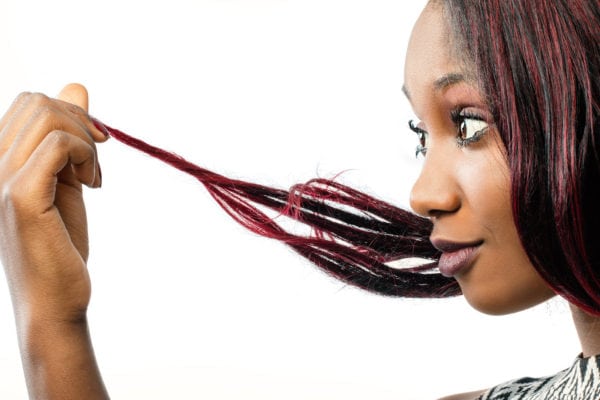How safe are your hair products? New research suggests black women who use dark hair dyes face a higher risk of breast cancer, while chemical relaxers and straighteners increase the odds in white women.
In a study of more than 4,000 women, dark brown or black hair dyes by black women was linked to a 51 percent greater risk of breast cancer. And white women who used hair relaxers had 74 percent higher risk.
“Our findings do not suggest that simply using hair dyes, relaxers or both will cause a woman to get breast cancer,” said study lead author Adana Llanos, an assistant professor of epidemiology with the Rutgers School of Public Health and Rutgers Cancer Institute of New Jersey. “The reality is that we regularly encounter a variety of harmful exposures, which we have no control over.”
But, she added, “we should limit or reduce the possibility of harmful exposures when we are able to do so.”
This debate over hair products and cancer risk isn’t new. Scientists have studied the potential risks of hair dye for decades, focusing on bladder and breast cancers and leukemia. So far, the findings haven’t been definitive. Most studies looking into hair dye and breast cancer have found no link between the two, according to the American Cancer Society.
[Related: Rethink Your Manicure]
The studies, however, haven’t included black women, Llanos said.
For the new study, researchers asked 4,285 white and black women in New York City and New Jersey about their past use of hair care products. Nearly 2,300 were breast cancer survivors. The goal was to compare hair product use among women who developed breast cancer and women who didn’t get the disease.
The products included dyes, chemical relaxers and deep conditioning creams containing cholesterol or placenta. Cholesterol is marketed as a moisture restorer, and placenta is sold as a hair repairer.
Researchers found black women who used dark dyes had a 51 percent greater risk of developing breast cancer overall, but the risk for developing estrogen receptor positive breast cancer—the most common type—was 72 percent higher.
Llanos and her team don’t yet understand why the chemicals in hair products may boost cancer risk, but she said research suggests it could have something to do with DNA damage or the body’s absorption of harmful chemicals. It’s also unclear why the risks differ by race or why darker dyes might be especially dangerous.
“One hypothesis is that the chemical composition of hair products marketed for and used among whites may differ from the products marketed for use by African Americans,” she said. “More research is needed to determine specifically which compounds and chemicals are dangerous and even which specific consumer products and brands contain those chemicals.”
[Related: Are Some Cosmetics Promising Too Much?]
Though researchers adjusted for age, education or birth control pill usage, Llanos said it’s possible lifestyle factors other than hair products could affect breast cancer risk.
Llanos’ study wasn’t intended to frighten women. Just “be mindful of hair products, cosmetics and other personal care products that you use,” she said.
According to the National Cancer Institute, about 12 percent of American women will develop breast cancer at some point in their lives.
Could Hair Products Raise Breast Cancer Risk?






